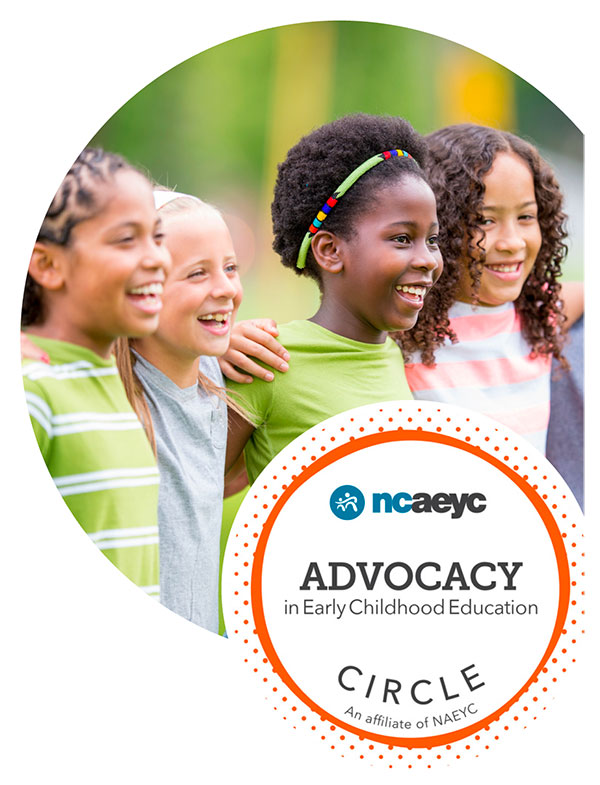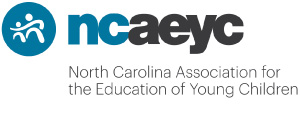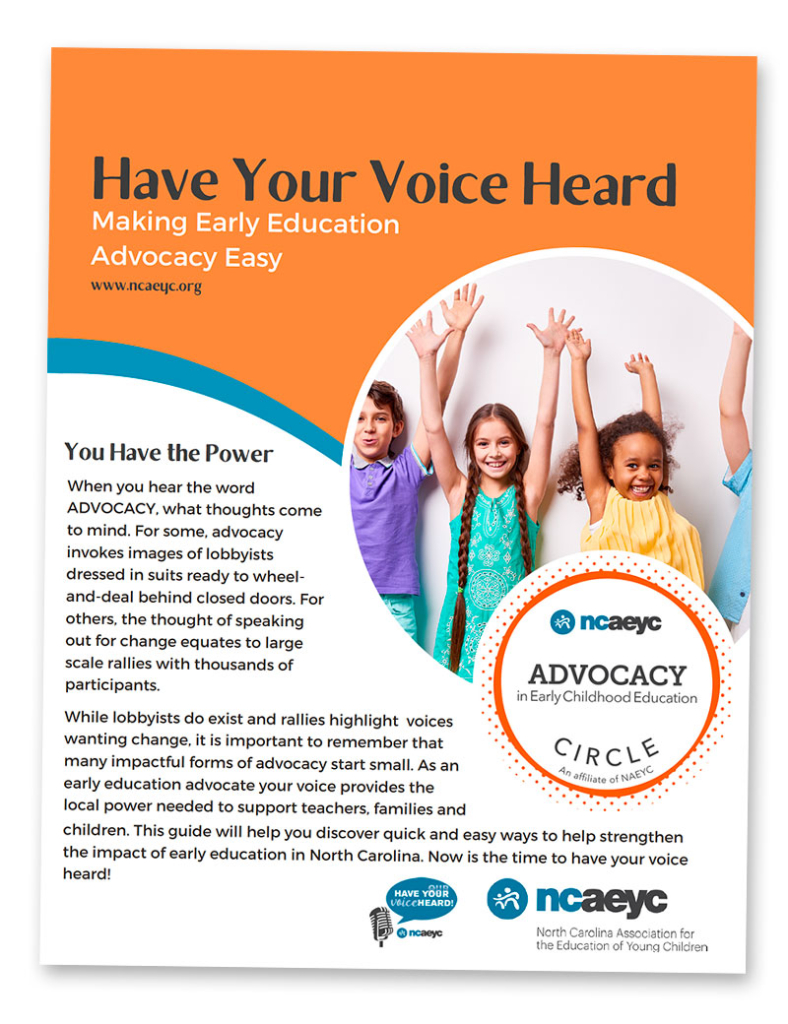A Space to be Heard
When: February 9th, 2023
Time: 6:30 pm – 7:30 pm
Click to register
Advocacy doesn’t have to be scary. The most influential change happens when passionate people get together to push for progress on a grassroots level. The NCAEYC Advocacy Circle is a safe space to team up with other early education professionals and discuss localized ways to help our profession thrive.
This month, we will work as a collective group to identify this fiscal year’s policy goals. Come ready to share what early education topics need to be on the minds of our state’s local leaders.
The NCAEYC Advocacy Circle is open to all individuals passionate about early education in North Carolina.

Have Your Voice Heard
Making Early Education Advocacy Easy
You Have the Power
When you hear the word ADVOCACY, what thoughts come to mind. For some, advocacy invokes images of lobbyists dressed in suits ready to wheel-and-deal behind closed doors. For others, the thought of speaking out for change equates to large scale rallies with thousands of participants.
While lobbyists do exist and rallies highlight voices wanting change, it is important to remember that many impactful forms of advocacy start small. As an early education advocate your voice provides the local power needed to support teachers, families and children. This guide will help you discover quick and easy ways to help strengthen the impact of early education in North Carolina. Now is the time to have your voice heard!
1. Know Your Cause
Early education is a big topic. As an advocate, it is easy to get lost in the wide range of ideas and causes to promote with your voice. Take time to fine-tune what elements of early education YOU are passionate about. Understanding the issues that drive you to action will empower your message, and keep you centered on a set goal. Stop, and reflect on some of the questions below to help you discover your cause:
- What specific early education issues do I think need attention and support?
- What early education voices are not being heard in my community?
- Are there any early education causes that affect me and/or my loved ones?
- What social barriers keep children and families from succeeding in my community?

2. Think Local…Then Expand
The greatest change starts close to home. Local laws and mandates like zoning, social equity, tax expenditures, and local spending all impact the quality of early education in your community.
Take time to understand the issues affecting early education in your local community. Learn the names of the local leaders, politicians, and fellow early education advocates that live and work with you. Have conversations with family and friends about early education topics affecting your family. By approaching early education progress from a grassroots level, you have the ability to enact progress you can see!
Your Local Early Education Voice is Heard by:
- Local Politicians
- Business Leaders
- Loved Ones
3. Find Other Early Education Allies
Great victories are never fought alone. The North Carolina early education field is vast and filled with fellow professionals seeking to improve the lives of children, educators, and families. Connect with state and local early education groups with like-minded early education goals and objectives.
Politicians and education leaders pay attention to collective voices. Make an effort to team up with other advocates when you visit legislators, champion laws, and press for change. When you team up with other early education allies you increase the resources, expertise, and strength of your message. Securing yourself around other strong advocates also provides a stable support system during periods of stress and set-back.
4. Communication is Key
Effective communication determines the success of your early education message. With electronic devices and social messages battling for the attention of those around us, it is essential to evaluate when and how you advocate for early education causes. Take a look at the communication ideas below and reflect on ways your advocacy toolkit can grow!
Audience:
It is essential to know your audience when you advocate. Make sure you know who you are talking with, and what their core beliefs are, In some instances, your audience might be a group of loved ones or classroom parents discussing like-minded approaches to early education issues. At other times, your audience might consist of business leaders, non-profit managers, or politicians who hold opposing views.
Taking time to know WHO you are talking to and WHAT their belief systems are will help you fine-tune the direction of your advocacy message and increase the likelihood that they hear what you say.
Time:
Time is important when you put on your advocacy hat. In some instances, you might only have a minute or two to make your case to a policy maker or parent. As you enter into an advocacy conversation, make a mental note of how busy the listener is and adjust your message to the time available.
Don’t be afraid to follow up shorter advocacy discussions with an email or letter. It is also wise to develop a quick one minute advocacy “elevator speech” when interactions become rushed.
Relatable:
Personal experiences tie humans together. An important way to make early education advocacy relatable is to combine your message with real life experiences and stories. Making advocacy personal removes personal barriers between you and the listener. It also gives you a way to tell your story and share the ways early education has benefited you.

5. Self-Care is Vital
Advocacy work is physically, emotionally, and mentally draining. The roots of early education advocacy require a person to fight for change while carrying the pressures facing children, families, and educators. This is hard.
It is important to think about yourself and know when to stop and take a breath. Pace your personal advocacy work, and don’t be afraid to step back when you hit your limit. Teaming up with other allies who can recognize signs of advocacy fatigue is essential to staying strong for your early education causes.
The great thing about early education advocacy work in North Carolina is the multitude of ways you can have your voice heard. If one method of advocacy makes you exhausted, take a break and find another method to get your voice heard.
What types of advocacy do I like to participate in?
What types of advocacy make me exhausted?
What are my signs of burn-out and exhaustion?
How do I care for myself?
Creating Your “Elevator Speech”
An elevator speech is a quick one-minute overview of change you want to see. Here are some key points to include when creating your own:
- Your name and where you live
- How you are involved in early education
- What policy issue are you advocating for
- Why should the person listening care
- How you feel the issue can be fixed
- Always thank the person for listening



